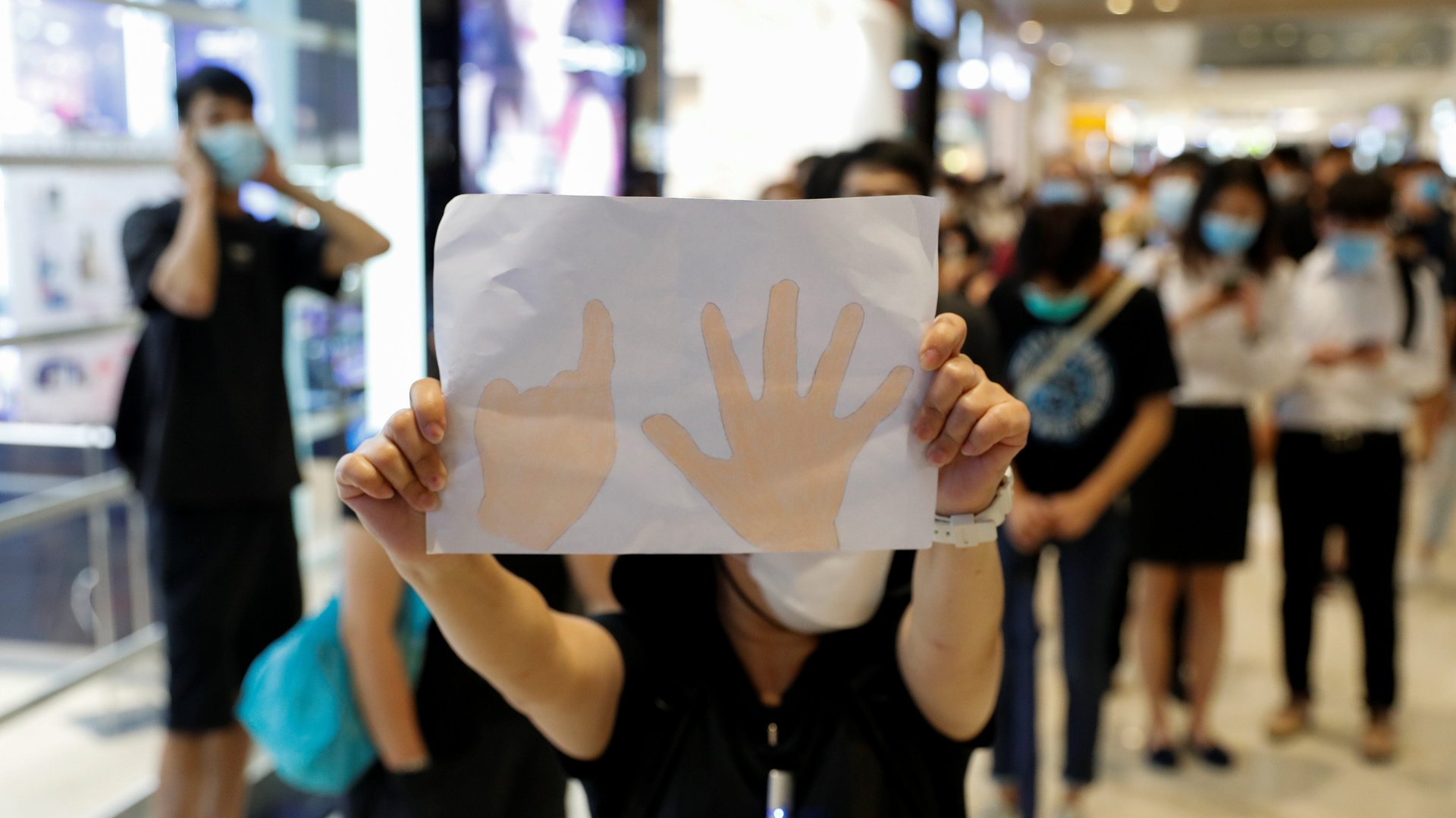A law that once outlawed insulting the Queen is now being used to stifle speech in Hong Kong
As much as China would like to forget its humiliating colonial history, when its territory was carved up by powerful countries, it appears to have no issue with dusting off colonial-era laws to crack down on present-day dissent.


As much as China would like to forget its humiliating colonial history, when its territory was carved up by powerful countries, it appears to have no issue with dusting off colonial-era laws to crack down on present-day dissent.
A prominent Hong Kong democracy activist, Tam Tak-chi, was charged yesterday on five counts of “uttering seditious words” under a law that dates back to 1938. The government had evidently spent hours poring through reams of recordings to tally up the number of times (link in Chinese) Tam had uttered supposedly seditious phrases, ranging from a handful to several hundred times between January and August, according to a report in local news outlet Stand News citing the prosecution’s indictment. The allegedly seditious words include the following protest slogans:
- “Liberate Hong Kong, revolution of our times,” 389 times
- “Five demands, not one less,” 321 times
- “There are no rioters, only tyranny,” 18 times
- “Disband the police force,” 14 times
- “Death to corrupted police families,” 324 times
- A slogan that recounts three infamous milestones of last year’s protests (the July 21 Yuen Long mob attack, the Aug. 31 police assault on train passengers, and the Oct. 1 police shooting of a young protester), 154 times
The sweeping charges—made under the colonial-era Crimes Ordinance, which incorporated the earlier sedition law—could see Tam imprisoned for two years. They are also clearly meant to send a warning signal to other protesters, journalists, and publishers: stop using the protest slogans, or risk being charged with sedition. With the freedom of expression and press more precarious than ever under Hong Kong’s new national security law, this latest government attempt to ban a large swathe of speech marks yet another restriction on the city’s rapidly shrinking space for public discourse. Tam, who was arrested on Sep. 6, has also been denied bail.
If “uttering seditious words” seems like a quaint anachronism, it’s because the crime of sedition in Hong Kong traces its roots back to the 1840s, when the city was ceded to Britain. The offense as it exists now in the Crimes Ordinance is defined as attempts to “bring hatred or contempt” against the Queen or the Hong Kong government, or to “raise discontent or disaffection” and “ill-will and enmity” among Hong Kongers. The case against Tam marks the first sedition charge since Hong Kong’s handover to China in 1997, according to the South China Morning Post. In March, a district councilor of the Democratic Party was arrested in the dead of night on suspicion of sedition, marking the first time in decades that the crime had been invoked.
Hong Kong’s chief executive, Carrie Lam, said yesterday that whether the law dates from the colonial era or not is irrelevant. “If the law is still valid, then it is a law that could be deployed under certain circumstances.”
It’s not the first time the Hong Kong government has turned to colonial-era laws to suppress dissent. Critics opposed its decision to characterize a protest last June as a “riot,” a vaguely-defined crime punishable by up to 10 years imprisonment under the 1967 Public Order Ordinance which lawyers and human rights activists have said is disproportionate and open to abuse. The government also pushed through a face mask ban last October using colonial-era emergency powers. The mask ban was later ruled unconstitutional.
Governments in other former British colonies have also been prone to deploy colonial-era laws against critics. In 2017, Pakistan invoked blasphemy laws inherited from British rule to clamp down on online speech. More recently, India turned to a colonial-era sedition law that had been used to imprison Mahatma Gandhi in 1922 to threaten civil society groups and stifle protests. And Myanmar suppresses dissent with the help of a series of laws from its colonial period. Two Reuters reporters, for example, were jailed for more than 500 days after being found guilty under 1923 Official Secrets Act.